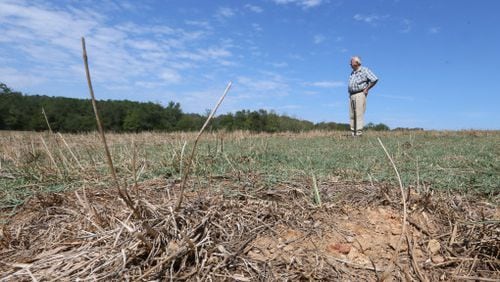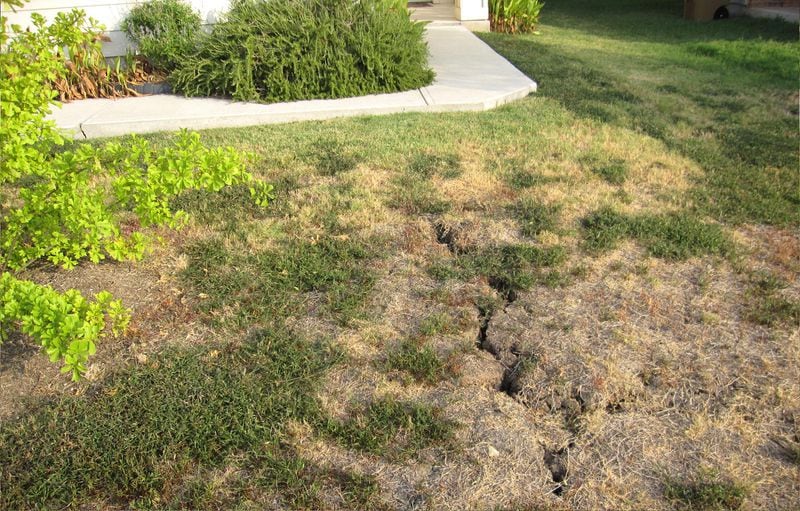With the ongoing drought, your once-lush lawn may be looking wilted or turning brown and crunching as you walk. The state Environmental Protection Division has declared a Level 2 drought in 52 Georgia counties, including metro Atlanta.
Due to the drought, Georgia has imposed stiff new water restrictions to protect the state's supply. So you may be wondering what this means for your lawn and its long-term health. Here's what you need to know:
Should you water your lawn?
"Really, it's on an as-needed basis," said Ryan Edwards, account manager with Nature's Turf in Fayetteville.
Look for signs that your lawn is getting dry, such as blades of grass that look wilted, a crunching sound when you walk across it and the appearance of footprints after walking on your lawn, he recommended.
In addition, your grass may change color, turning bluish-green when it's suffering from the effects of drought, according to the University of Georgia Cooperative Extension.
How should you water?
Experts generally recommend watering infrequently, deeply and slowly. This helps reduce disease, increase airflow and conserve water.
Watering for a short period of time every few days doesn't do your lawn any favors. Instead, this practice causes your grass to develop shallow roots that are more vulnerable to drought.
Water should reach a depth of six inches in order to provide the most benefits to your lawn. You can test this by using a spade, screwdriver or soil probe to measure the depth of your wet soil after watering.
In addition, watering slowly gives the water a chance to penetrate the dry soil instead of just running off.
When should you water?
Watering infrequently is not only good for your lawn, but it also helps you comply with Georgia's new water restrictions. Outdoor watering is limited to two days a week. Even-numbered addresses (including those that end in zero and sites without a numbered address) can water on Wednesdays and Saturdays between 4 p.m. and 10 a.m. Odd-numbered addresses can water during the same time span on Thursdays and Sundays.
Watering in the early morning (between 6-10 a.m.) reduces evaporation as well as wind drift, since It tends to be less windy in the morning.
Credit: Joshunda Sanders
Credit: Joshunda Sanders
Will your lawn die?
Grass is generally resilient, so you shouldn't panic if it turns brown.
Many common types of grass are self-repairing if they're damaged, Edwards said. These include Bermuda and Zoysia varieties.
When you see grass that has turned brown, that means it has entered dormancy, which may actually help it survive.
"Dormancy is a protective state to prevent further damage," Edwards explained. Although the blades may dry up and die, the plant is still alive and better able to survive a drought by conserving water. Although the plant isn't currently developing, it's still alive.
Should you mow your lawn?
Now that temperatures are getting cooler, you should need to mow your lawn much less than you had to during the hot summer months.
If you still need to mow, however, Edwards said it's good for the lawn because it helps create airflow. He recommended mowing every two or three weeks or so at a height of about two inches.
About the Author







